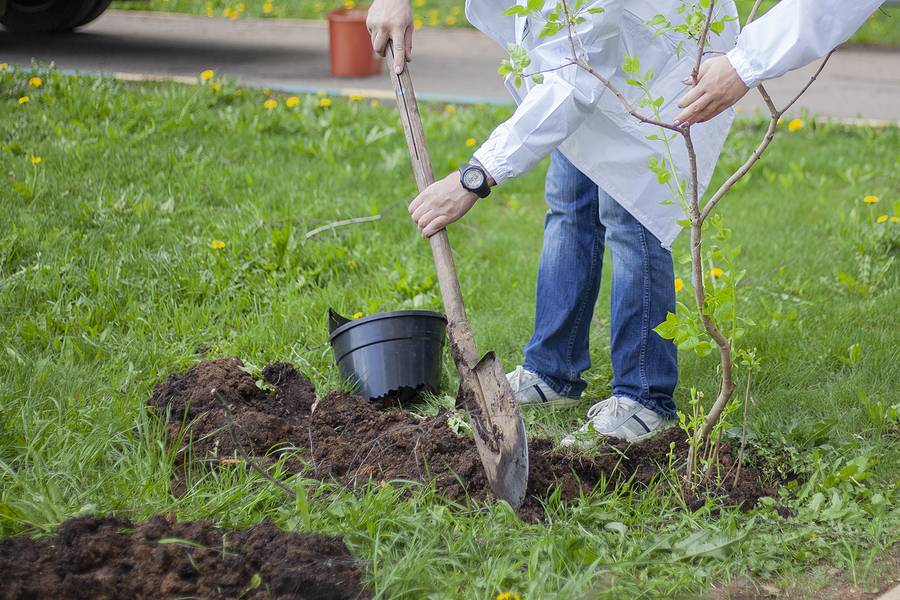
09
Septic tanks are a common solution for households that are not connected to a central sewage system. Maintaining a septic tank is essential to ensure that it functions properly and to prevent damage to the environment. One of the ways to keep your septic tank in good condition is by planting around it correctly.
The area around your septic tank is known as the drain field or leach field, and it is crucial to be careful about what you plant in this area. The roots of certain plants can penetrate and damage the pipes and other components of your septic system. To avoid this, it is advisable to only plant grass or ground cover in this area. Grass is an excellent choice as its roots do not grow deep, and it helps to keep the soil in place. Ground covers, such as clover or creeping thyme, can also be used, but they must be low-growing and not spread too aggressively.
Trees, shrubs, and deep-rooted plants should not be planted close to your septic tank as their roots can cause damage to the pipes and other components. If you want to add some greenery to your yard, it is best to plant these types of plants at least 10 feet away from the drain field. If you already have trees or shrubs near your septic tank, it is essential to have them removed before they cause any damage to your system.
Another important factor to consider when planting around your septic tank is the type of soil in the area. The soil around your septic tank should be well-drained, so water does not pool in the area and cause problems with your system. If the soil is not well-drained, you may need to amend it to improve its drainage capabilities.
Regular septic tank pumping is also essential for the health of your septic system. Septic tanks should be pumped every three to five years, depending on the size of your tank and the number of people in your household. During a septic tank pumping, a septic company will remove the sludge and scum from the tank, leaving it clean and ready to function properly. Septic companies typically use trucks with tanks to pump out the waste from your septic tank and transport it to a treatment facility.
If you are having any problems with your septic system, we advise you to call Charlotte Septic Pros for help. Our experts have the knowledge and experience to diagnose and repair any problems with your septic system, including leaks, clogs, and backups. They can also perform routine maintenance, such as cleaning and inspecting your drain field to make sure it is functioning properly.
Planting around your septic tank requires careful consideration of the types of plants you choose and the soil in the area. Grass or ground cover is the best choice, while trees, shrubs, and deep-rooted plants should be avoided. Regular septic tank pumping and the services of a septic company in Matthews are also essential to keep your septic system in good working order. By following these guidelines, you can maintain a healthy septic system and keep your yard looking beautiful at the same time.

22
Can Bacteria Additives Eliminate the Need for Pumping? If you own a home with a septic system, you’ve probably seen…
Read more
12
A single slow drain in your home can feel like a minor inconvenience. Maybe the sink takes a little longer…
Read more
05
Are Slow Drains a Septic Issue or Just a Clog? Slow drains are one of those household problems that start…
Read more
02
What Septic Service Techs See That Homeowners Miss Most homeowners only think about their septic system when something goes wrong.…
Read more
21
Simple Habits That Protect Your Septic System A well-functioning septic system does its job quietly, but the moment something goes…
Read more
14
Pump Now or Pay Later: The Real Cost of Skipping Maintenance A properly functioning septic system is easy to forget…
Read more
11
Why Your Septic System Always Acts Up at the Worst Time Homeowners often feel that septic problems strike at the…
Read more
04
Early Warning Signs Your Septic Tank Needs Pumping For homeowners who rely on a septic system, routine maintenance is not…
Read more
29
Why Does My Septic System Smell Fine One Day and Terrible the Next? If you own a home with a…
Read more
19
Is Your Septic System Overdue? Simple Home Checks You Can Do Today For many homeowners, the septic system is a…
Read more